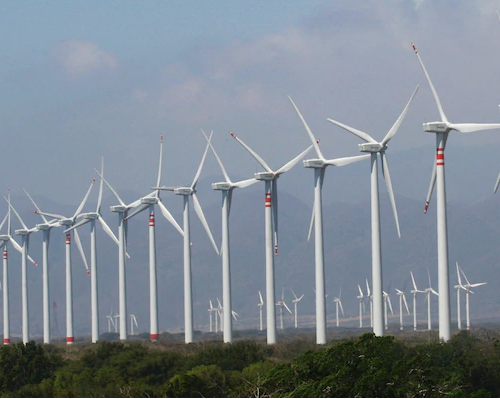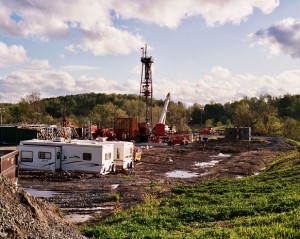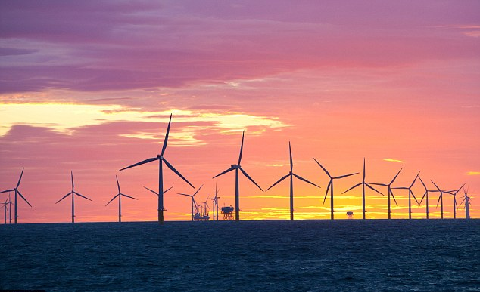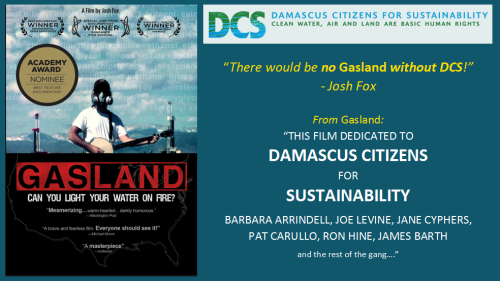
Goldman Sachs Says Renewable-Energy Spending Will Surpass Oil and Gas for the First Time Ever in 2021
June 26, 2020
PA Attorney General Releases Scathing Grand Jury Report on Fracking Industry, State Regulators
June 29, 2020Irish Draft Programme for Government Includes a Green New Deal and a Ban on Fracked Gas Imports

Download the draft Irish Programme for Government as a pdf
Read more in the Irish Times
Excerpt from the draft Irish Programme for Government:
Mission: A Green New Deal
Emissions
We are committed to an average 7% per annum reduction in overall greenhouse gas emissions from 2021 to 2030 (a 51% reduction over the decade) and to achieving net zero emissions by 2050. The 2050 target will be set in law by the Climate Action Bill which will be introduced in the Dáil within the first 100 days of government alongside a newly established Climate Action Council. The Bill will define how five-year carbon budgets will be set. Every sector will contribute to meeting this target by implementing policy changes as outlined throughout this Programme for Government. The special economic and social role of agriculture and the distinct characteristics of biogenic methane as described by the Intergovernmental Panel on Climate Change will be fully recognised in plans to achieve these targets. We will continue to work to achieve a broad political and societal consensus on a Just Transition to a sustainable future for all communities.
With the increased scale and depth of this ambition, new strategies will be needed to sustain a reduction trajectory which will increase over time to meet an average 7% per annum fall in emissions to 2030. In setting the initial carbon budget, we will incorporate measures which initiate significant change in line with this ambition. The strategies to deliver these emissions reductions from will require genuine consultation, detailed planning, organisation and adequate mechanisms for funding and incentives, as well as the gradual build-up of their impact. Many of the changes started in the first carbon budget period will only lead to reductions in the second carbon budget period. In this initial phase we will also ensure that the economic recovery is a green recovery. We will directly draw on the National Economic Plan and associated funding to front load investment that is directly aligned with our climate ambitions.
In setting the second carbon budget for 2026-2030, we will not yet be in a position to identify all the emerging technologies, changing scientific consensus or policies to meet our full ambition. This will require a further allocation within the overall carbon budget, subject to intense evaluation. This approach, which mirrors the Danish model, will be reflected in the Climate Action (Amendment) Bill and in future iterations of the Climate Action Plan.
In the second carbon budget period, strong climate action will be delivered from the foundations established in the initial phase, enabling more significant gains in order to reach the binding average 7% per annum reduction to 2030. This in turn will lay out a pathway for the third carbon budget to drive on reductions from 2030 onwards to achieve full de-carbonisation and net sequestration by 2050.
As we set our society on a trajectory towards net zero emissions by 2050 it is vital that there is adequate time and effort devoted to working with communities and sectors in designing and delivering the pathway to achieve the goal in a fair way. This will mean creating fresh opportunities for those sectors most exposed by the transition and supporting those in our community least equipped to make the changes. This fundamental step change in ambition and broadening of our target horizon to a 7% reduction average per annum will be underpinned by the core philosophy of a Just Transition. We are committed to ensuring no sector of society or community is left behind in the movement to a low carbon future.
In order to deliver this expanded and deepened climate ambition, far reaching policy changes will be developed across every sector, including in particular:
- Delivery of a National Aggregated Model of Retrofitting reaching over 500,000 homes by 2030 as part of the EU Renovation Wave.
- Learning from district heating pilot projects to launch a scaled-up programme.
- Accelerated electrification of the transport system including electric bikes, electric vehicles and electric public transport alongside a ban on new registrations of petrol and diesel cars from 2030.
- A strategy for remote working and remote service delivery, taking advantage of the opportunity for rapid roll out of the National Broadband Plan.
- An unprecedented modal shift in all areas by a re-orientation of investment to walking, cycling and public transport.
- A new sustainable rural mobility plan.
- A transformational programme of research and development to ensure Ireland is at the cutting edge of scientific and technological innovation in meeting our climate change targets, including in the bioeconomy, in marine sequestration, in green hydrogen, in wave technology, in developing floating offshore wind turbines to take advantage of the Atlantic coastline, and in agriculture to improve breeding programmes, feed additives to reduce biogenic methane, agroforestry, paludiculture and nutrient management. We will mobilise “Challenge Calls” to identify and fund fresh, disruptive ideas to help meet our targets from broader society.
- A major drive to realise the immense potential of Ireland’s offshore renewables.
- A systematic programme of sectoral audits of the commercial and industrial sector to underpin area by area strategies to meet the new national targets. These will be done in consultation with relevant stakeholders in those sectors to meet targets consistent with our national climate objectives (with particular potential in food, cement and refrigeration). Expansion and incentivising of micro generation including roof top solar energy.
- A new strategy to expand afforestation, particularly Close to Nature Forestry and agro-forestry.
- Transforming the scale of organic farming with delivery of a fair price for farmers at its heart.
- Building on Ireland’s relative carbon efficiency in food production and ensuring the delivery of the measures identified by Teagasc to the fullest extent possible.
- Rapid evaluation of the potential role of sustainable bio-energy.
The completion and implementation of a major waste and circular economy action plan.
We will also evaluate and implement plans to realise the carbon sink potential of our marine environment based on the introduction of Marine Protection Areas.
Land use offers significant potential to sequester additional carbon and provide a new source of family farm income and rural economic benefit. The achievement of such improvements is not addressed in current EU policy. We shall seek to incentivise land use in the new European Green Deal and broader EU policy. We shall evaluate, before the end of 2020 whether Ireland should include wetlands in our land use inventory notified under EU regulations. Within 24 months we will evaluate the potential for contributions towards our climate ambition from land use improvements and set in train the development of a land use plan based on its findings.
Every minister will make climate action a core pillar of their new departmental strategies, which must be produced within six months of the Government taking office. Each minister will direct each of the agencies and offices under their department to adopt a climate mandate under which those bodies will seek to support climate action within their own operations and among their clients and suppliers.
Climate Governance
Climate change is the single greatest threat facing humanity. The Government will react comprehensively and imaginatively to this challenge by bringing all communities with us in a manner which ensures that we achieve a rapid reduction in and then reversal of our impact on the climate. It is in all of our interests as we aim to protect and improve public health and quality of life. We will work with all parts of society to achieve this in a fair way, with every sector playing its part, ensuring the resilience of our economy, the fairness of our society and the quality of our environment.
We will introduce the Climate Action (Amendment) Bill 2020 into the Dáil within 100 days. It will:
- Set a target to decarbonise the economy by 2050 at the latest.
- Make the adoption of five-year carbon budgets, setting maximum emissions by sector, a legal requirement.
- Establish the Climate Action Council on an independent statutory footing and ensure greater gender balance and increased scientific expertise in its membership.
- Ban the sale of new and the importation of second hand petrol and diesel cars from 2030.
We will:
- Update the Climate Action Plan annually and report progress quarterly.
- Maintain the existing Climate Action Delivery Board model.
- Propose that the Oireachtas establishes a standing Joint Oireachtas Committee on Climate Action, with powers similar to the Public Accounts Committee.
- Ensure that the Department of Climate Action has the capacity and expertise to manage the transition in energy efficiency and renewable energy and to carry out its expanded function in relation to carbon budgets.
- Review on an on-going basis the structure and operations of state agencies who will be responsible for delivery of increased targets under this plan.
- Work with the European Commission to advance a stronger National Energy and Climate Plan (NECP) for 2030 consistent with the ambition of this programme.
- Respond to the OECD review of the Environmental Protection Agency and ensure that our legislative framework for licensing pollution is fit for purpose.
We are conscious of the limitations of examining greenhouse gas emissions solely on a production basis. We will conduct a review of greenhouse gas emissions on a consumption basis, with a goal of ensuring that Irish and EU action to reduce emissions supports emission reductions globally as well as on our own territories.
Energy
Energy will play a central role in the creation of a strong and sustainable economy over the next decade. The reliable supply of safe, secure and clean energy is essential in order to deliver a phase-out of fossil fuels. We need to facilitate the increased electrification of heat and transport. This will create rapid growth in demand for electricity which must be planned and delivered in a cost-effective way.
Energy Efficiency
We will implement a new National Energy Efficiency Action Plan to reduce energy use, including behavioural and awareness aspects of energy efficiency such as building and data management.
A Revolution in Renewables
We are all committed to the rapid decarbonisation of the energy sector. We will use this as an opportunity to create new, quality jobs across the country.
We will take the necessary action to deliver at least 70% renewable electricity by 2030. To achieve this we will:
- Hold the first Renewable Electricity Support Scheme (RESS) auction by the end of 2020, with auctions held each year thereafter, including the first RESS auction for offshore wind in 2021.
- Give cross-government priority to the drafting of the Marine Planning and Development Bill so that it is published as soon as possible and enacted within nine months.
- Produce a whole-of-government plan setting out how we will deliver at least 70% renewable electricity by 2030 and how we will develop the necessary skills base, supply chains, legislation and infrastructure to enable that. This new plan will make recommendations for how the deployment of renewable electricity can be speeded up, for example the provision and permissioning of grid connections.
- Complete the Celtic Interconnector to connect Ireland’s electricity grid to France.
- Commence planning for future inter-connection with our neighbours.
- Finalise and publish the Wind Energy Guidelines having regard to the public consultation which has just taken place.
- Develop a solar energy strategy for rooftop and ground based photovoltaics to ensure that a greater share of our electricity needs are met through solar power.
- Continue Eirgrid’s programme “Delivering a Secure, Sustainable Electricity System” (DS3).
- Ensure that the energy efficiency potential of smart meters starts to be deployed in 2021 and that all mechanical electricity meters are replaced by 2024.
- Strengthen the policy framework to incentivise electricity storage and interconnection.
- Support the clustering of regional and sectoral centres of excellence in the development of low carbon technologies.
- Invest in research and development in “green” hydrogen (generated using excess renewable energy) as a fuel for power generation, manufacturing, energy storage and transport.
We will also produce a longer term plan setting out how we will take advantage as a county of the massive potential of offshore energy on the Atlantic Coast. This plan will set out how Ireland can become a major contributor to a pan-European renewable energy generation and transmission system, and taking advantage of a potential of at least 30GW of offshore floating wind power in our deeper waters in the Atlantic.
This plan will focus on utilising our existing energy and maritime infrastructure. It will seek to create the right investment environment, support ocean energy research, development, and demonstration of floating wind, tidal, and wave power, together with the development of innovative transmission and storage technologies such as high voltage direct current interconnection and green hydrogen on an all-island basis. This plan will set out a path to achieving 5GW capacity in offshore wind by 2030 off Ireland’s Eastern and Southern coasts.
Bringing Communities with Us
We need to bring communities with us as new energy infrastructure gets installed.
We will:
- Increase the target for the number of Sustainable Energy Communities.
- Prioritise the development of microgeneration, letting people sell excess power back to the grid by June 2021.
- Ensure community energy can play a role in reaching at least 70% renewable electricity, including a community benefit fund and a community category within the auction.
- Continue to work with the EU to agree community participation as an integral part of installing new renewable energy and a route for community participation in the projects.
- Support a new Green Flag programme for communities building on the successful programme in schools.
- Conclude the review of the current planning exemptions relating to solar panels to ensure that households, schools and communities can be strong champions of climate action.
- Implement an ambitious national energy efficiency action plan which will set higher targets for all sectors.
Regulation Driving Climate Action:
Government will give a clear pathway towards better practices and less reliance on fossil fuels across every sector. Timely signposts will be set out, giving the sectors the chance to adapt. We will publish a schedule of incentives and regulatory changes to allow people and businesses to plan.
We will develop:
- New stress tests for financial institutions to look at the impact of tangible risks of higher temperature scenarios and involvement with the fossil fuel economy on their portfolios as recommended by the Taskforce on Climate Financial Disclosures.
- New standards to reduce emissions from F-gases and new requirements to make lighting more energy efficient.
- New requirements around heating systems.
- A regulatory environment to support development of district heating
- Efficiency standards for equipment and processes, particularly those set to grow rapidly such as Data Centres.
- Expectations for “Obligated Entities” to leverage carbon credits.
- A policy framework for low emission zones.
Decarbonising Energy Production
We will support a just transition for the workers and regions impacted as peat and coal fired power generation is phased out.
We will consider the implementation of a carbon price floor in the ETS to support the transition from fossil fuels to renewables.
Natural Resources:
We will harness the natural resources to meet our needs in this country, without compromising the ability of future generations to meet theirs. We will:
- End issuing of new licenses for exploration and extraction of gas, on the same basis as the recent decision in relation to oil exploration and extraction.
- Support the tightening of the sustainability assessment rules prior to the approval of any projects on the EU PCI list.
- Ensure that Bord na Móna is required to take into account climate, biodiversity, and water objectives as they deliver on their commercial mandate, through an amendment to the Turf Development Acts 1998.
As Ireland moves towards carbon neutrality, we do not believe that it makes sense to develop LNG gas import terminals importing fracked gas, accordingly we shall withdraw the Shannon LNG terminal from the EU Projects of Common Interest list in 2021.
We do not support the importation of fracked gas and shall develop a policy statement to establish that approach.
We will ensure that local development plans are developed to stimulate economic activity for those areas which were expecting economic development arising from new fossil fuel infrastructure. As part of that we will consider how the potential of the Shannon Estuary in terms of regional economic development across transport and logistics, manufacturing, renewable energy and tourism, and develop a strategy to achieve that potential with support from the Exchequer.



